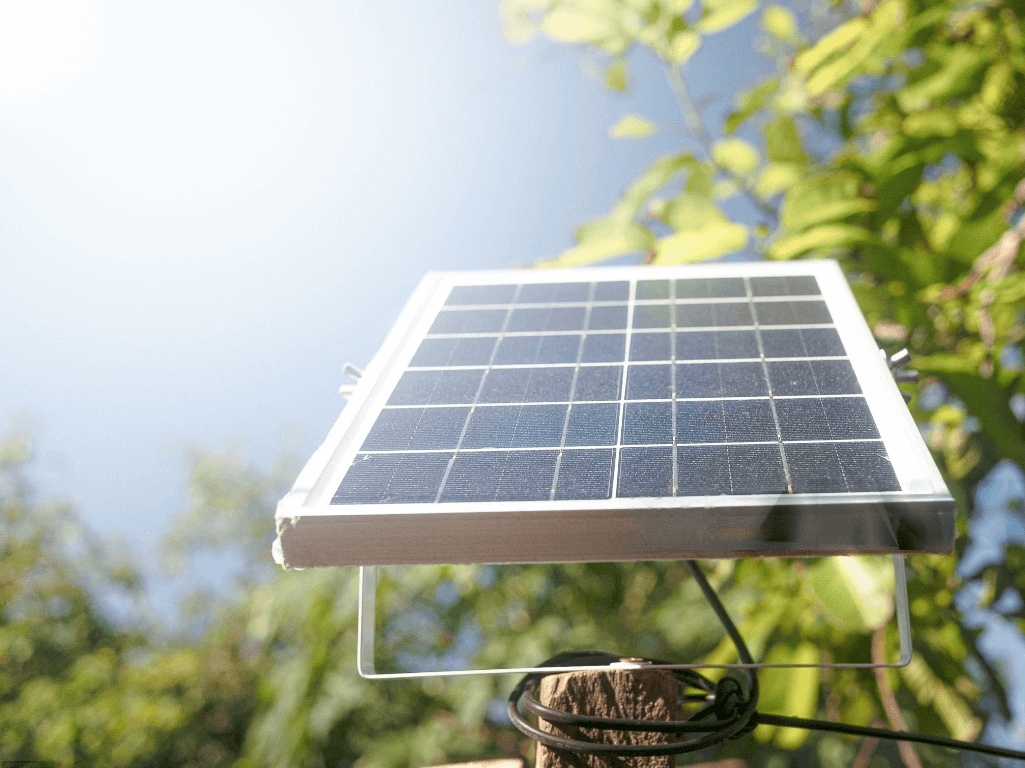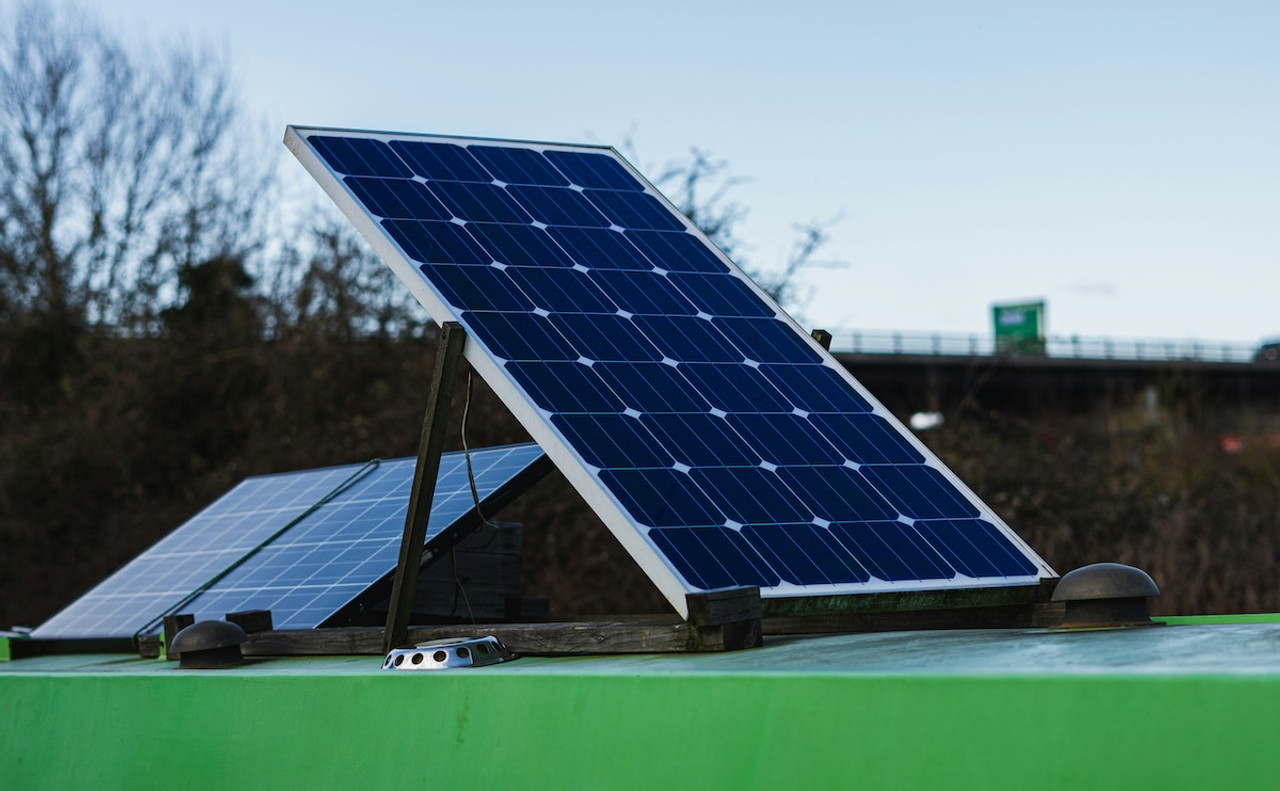Small Solar Panels: Types, Size, & Benefits
Small solar panels have recently emerged as a sustainable approach to energy consumption. Residents and business owners can now generate their own electricity, reducing their overall reliance on traditional power grids. These small solar panels are cost-effective, easy to install, and suitable for various applications, like powering small devices or carrying them during road trips.
Small solar panels come in various types and sizes, designed to meet a wide range of consumer needs and preferences. They can be monocrystalline, polycrystalline, or thin film. In this guide, we will analyze the benefits of small solar panels and outline the dimensions and exact sizes of roof-mounted solar panels.
What Is a Small Solar Panel
Small solar panels are compact versions of the larger panels that are mounted on the rooftop or on the grounds. They are designed for portability and ease of use and are suitable for those who are looking to invest in solar energy systems with limited budgets.
These small solar panels are ideal for people who like to travel or are planning to move out of their houses soon. Residents who do not have a specific roof type to get the larger ones installed can also go ahead with these small panels.
Types of Small Solar Panels
Small solar panels come in various types, each suited to different power needs. Three types of solar panels are commonly used by residents: monocrystalline, polycrystalline, and thin-film.
Monocrystalline Solar Panels
Monocrystalline solar panels are generally made from single-crystal silicon, which gives them a uniformly dark color. They are highly efficient and ideal for smaller, compact places with limited space.
The efficiency rate of monocrystalline solar panels ranges from 15 to 22%, suggesting that they can convert most of the harnessed sunlight into electricity.
Polycrystalline Solar Panels
Polycrystalline solar panels are made by melting the silicon crystals together, which forms a more blue-textured appearance. Compared to monocrystalline solar panels, polycrystalline ones are economical, but their efficiency rate ranges from 13 - 17%. Although polycrystalline solar panels are more affordable and have a lower manufacturing cost, they require more space for installation.
Thin-film Solar Panels
Thin-film solar panels are lightweight, flexible, and ideal for portable devices. They are made with thin layers of photovoltaic material and have a lower efficiency rate than monocrystalline and polycrystalline solar panels. The efficiency rate of thin-film solar panels ranges from 7 - 15%, and just like polycrystalline solar panels, they also require more space for installation.
How Are Small Solar Panels Different
Small solar panels differ slightly from traditional larger panels in size, installation, efficiency, etc. Some of the common differences are:
Size
Small solar panels are designed for easy portability, are lightweight, and can be easily integrated into portable setups. On the other hand, rooftop solar panels require proper installation on a roof structure to generate electricity from the sun.
Cost
Small solar panels are more economical than rooftop panels because of their smaller size. However, there’s a high upfront cost to install rooftop solar panels due to their large size and complexity.
Efficiency
Due to their small size and dimensions, small solar panels cannot harness more solar energy. On the other hand, rooftop solar panels have high-efficiency rates because they convert a larger percentage of sunlight into usable electricity.
Power Output
Due to its naturally lower power output, small solar panels are ideal for smaller appliances, like smartphones, smartwatches, laptops, gaming controllers, air purifiers, etc. Compared to small solar panels, rooftop solar panels are designed to generate more electricity to power the entire home and can charge multiple appliances simultaneously.
Applications
Small solar panels are ideal for off-grid adventures and camping trips and can also be a backup power source for small road trips or picnics. On the other hand, rooftop solar panels are primarily used to generate electricity to power residential or commercial units.
Installation
The most crucial aspect of small solar panels is their installation. Due to their compact and ergonomic size, they are extremely easy to set up. However, rooftop solar panels depend on your property’s structure and also require professional assistance for installation.

Benefits of Small Solar Panels
Small solar panels offer a unique combination of portability, sustainability, and affordability. They provide a distinct set of advantages like:
Versatile and Portable
Small solar panels are lightweight and compact panels that generate electricity. Although smaller, they benefit people who like hiking, traveling, or frequent off-grid adventures. Their versatility makes them an efficient backup power source for charging devices on the go.
Clean Energy
Solar panels can harness sunlight and produce renewable and clean energy. Like traditional solar panels, these small panels are a reliable source of sustainable energy. You can use these smaller panels to reduce your carbon footprint during an emergency or even when traveling to remote places.
Reduced Energy Bills
Small solar panels typically function as rooftop panels for one-bedroom apartments or smaller residential units. Small solar panels can generate enough electricity to power small appliances or trickle-charge batteries. With the help of these compact-sized solar panels, you can see a substantial reduction in your monthly electricity bills.
Easy to Install
Unlike traditional solar panels, small solar panels do not require proper installation. They can be set up quickly, as they often come with built-in USB ports. Due to its small size and portability, these solar panels are also easier to maintain. Just clean these smaller panels once in a while to remove the dust or debris and ensure optimal performance.
Budget Friendly
Small solar panels offer affordable ways to access clean and renewable energy. If you wish to power small—to mid-range wattage appliances, like smartphones, laptops, gaming consoles, and CPAP machines, then investing in a small solar panel is a good option. Renogy offers a wide range of small and large solar panels designed to combine portability, functionality, and power.
Solar Panel Size: What Are The Typical Dimensions for Solar Panels
The typical dimensions for solar panels vary as per their wattage capacity. Ideally, solar panels are categorized based on the number of solar cells ranging from 60 to 144. Based on the output power and dimensions, there are three different types of solar panels:
Residential Solar Panels
Traditional residential solar panels have 60 solar cells and can generate almost 400W to 500W of electricity. They typically measure about 40 inches by 65 inches.
Commercial Solar Panels
Commercial solar panels are larger than residential panels, with around 72 solar cells. These solar panels are around 40 by 79 inches and have a 6 x 12 grid of solar cells.
Half-cell Solar Panels
Half-cell solar panels are physically half the size of standard cells, which reduces electrical resistance and improves efficiency. These half-cell solar cells come with panels with 120 half-cells, which is equivalent to 60 full cells, and measure around 40 inches by 65 inches. There are also panels with 144 half-cells, which is equivalent to 72 full cells and measures 40 inches by 79 inches.
Conclusion
Small solar panels are changing the way we look at portable power. While they might not be a one-size-fits-all solution, they offer a versatile option to access clean energy. Most users have now been shifting to smaller, more compact solar panels to generate energy. This shift towards smaller panels is driven by multiple factors, including cost-effectiveness and ease of installation.
If you are moving to a different place, have low utility bills, or often go on off-grid adventures, getting a small solar panel installed can be extremely helpful. Additionally, if you are still wondering how small solar panels function and want to invest in a backup power source, you can check out the different solar panels and solar batteries from Renogy. It offers an economical option to invest in small solar panels.
Frequently Asked Questions about Small Solar Panels
1. Are small solar panels worth it
Yes, small solar panels are definitely worth investing in. These panels offer benefits like cost efficiency, easy installation, and portability. If you are looking for a backup power source for your home and outdoor needs, then installing small solar panels is highly recommended.
2. How much power can a small solar panel generate
Small solar panels can generate between 10W and 100W, depending on the size you choose. If you have a 5W compact panel, you can use it to charge small devices like smartphones or an LED bulb. If you go ahead with a 100W small solar panel, you can use it to power a laptop or even charge a solar battery.
3. Can I use small solar panels for my home
Yes, you can use a small solar panel for your house, but it all depends on the appliance wattage and how many appliances you intend to power simultaneously. These small solar panels can also help reduce your reliance on the grid.











